Gender At War PT I: Films Portraying Women On The Front-line
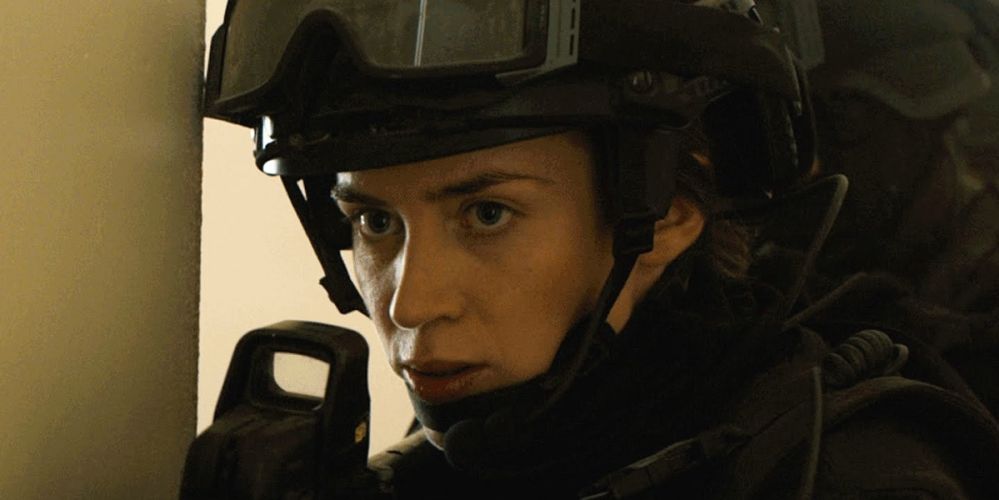
Becky spends her days working in TV and she spends…
We have plenty of excellent and notable films about women in wartime, but their narratives are all too familiar. Often the female protagonist is waiting for the return of her husband or lover, or she is grieving at sending her sons off to war (The Marriage of Maria Braun, Private Peaceful). Sometimes, the war itself exploits and manipulates the nature of our protagonists leading them to betray their country (Rome Open City, to name but one).
In the last few years, there has been a rise in women in war narratives, and not solely from the perspective of either a victim of the war or as a wife/mother not directly involved but emotionally compromised by the events taking place around her. Quite possibly in alignment with the slow recruiting of women in to the army in Western military, there has been a slow uptake of female characters who are working for themselves and not as a sidekick for someone else (usually a man).
We have seen this occurring frequently in sci-fi/fantasy films; Mad Max: Fury Road, Star Wars: The Force Awakens, even going back to Alien, Terminator and in spoof films such as Starship Troopers. The multi-dimensional female fighter is not a new phenomenon in films which take place in a unknown world to us. In films which inhabit more realistic looking landscapes, however, the female characters are only just beginning to take their place.
We have also started to see many films that depict a solid critique of war through the eyes of their female protagonists. Questions arise about the morality of war, and the line between hero and enemy begins to blur. Instead of the gung-ho pro-American stance of films (in which women are invisible) like Apocalypse Now or Saving Private Ryan or even the much more recent American Sniper, we have started to see a critique of modern warfare, more often than not instigated by a female protagonist.
Short disclaimer: not all of these films feature women on the ‘front-line’ as the title of this article suggests. As war has evolved in the last thirty to forty years, so have our notions on what front-line combat is. In some way, all of the women discussed below are fighting on the front-line – be it metaphorically or physically.
Zero Motivation (2014, Talya Lavie)
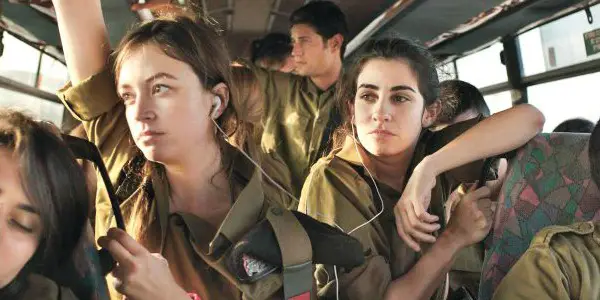
Talya Lavie’s black comedy Zero Motivation about a group of girls in the Israeli desert serving out their two years compulsory conscription is a front-runner for one of the greatest and wittiest war films in the past ten years. Zero Motivation provides a thoroughly engaging setup for a very real dialogue about drafting women into the armed forces (particularly the notorious Israel Defense Forces).
The film takes us through the everyday lives of two girls – Zohar and Daffi – best friends for life. That is, until Daffi decides she can’t deal with living so far away from civilisation and tries her best to get a transfer to Tel Aviv. Zohar is heartbroken at Daffi’s seemingly selfish decision, and tries to sabotage her attempts to leave. A suicide, attempted rape, staple-gun fight and mass paper shredding all feature in Zero Motivation, and yes it is most definitely a comedy.
The closest we come to any real war (you know, with guns and stuff) is when Zohar is on watch duty and becomes spooked, causing her to almost shoot a fellow soldier. Although there isn’t much action on-screen, the real war is being fought between Zohar and Daffi and is actually about navigating that weird space between being a girl and a woman. When Daffi leaves the camp, Zohar finds herself at a crossroad. She believes herself to be the only virgin on the entire camp, something which her roommates all think she needs to do something about. In a bizarre sequence of events, Zohar comes to the realisation that she should only lose her virginity for herself, not because anyone else is pressuring her to.
The strength of Zero Motivation lies in that it takes a narrative of a group of young women on the borders of the Israel-Palestine conflict, and very deliberately de-politicizes it. It allows us to remember that the people caught in the conflict of war are often those who have no interest in it whatsoever and, as it happens, would much rather play Minesweeper on the office computer.
Sicario (2015, Denis Villeneuve)
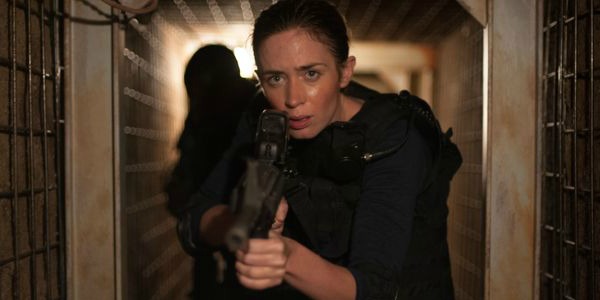
The war-on-drugs thriller Sicario attracted critics and audiences alike for more reasons than just its compelling dark narrative. Nail bitingly tense, the story of corruption and revenge infiltrates the standard war on drugs setup and provides a basis for mistrust and fear. I wasn’t the greatest fan of Sicario, personally, despite it being revered by the critics. I felt that it was overlong, provided us with a very typically American view on the War on Drugs, and felt slightly laden with propaganda.
However, in terms of its protagonist, Emily Blunt as Kate, an FBI agent who is slightly out of her depth within the operation, the film completely intrigued me. We are first introduced to Kate whilst she is with her team, uncovering a number of bodies in a suspected kidnappers house. Kate shoots the suspect with no hesitation, and directs the rest of the team to search the house. Her actions and dialogue confirm that she is in charge. She keeps a cool head, and even when the operation goes disastrously wrong, she does not panic, instead reserving her emotions for the privacy of her shower.
As the film goes on, Kate becomes far more uneasy and anxious about the situation that she has been put into. Not only is she remarkably out of her depth (despite being hailed as the FBI’s best), she has not been trained on drug warfare. Towards the end of of the film it is revealed that the entire scenario had been concocted as a set-up, and the people whom Kate was tasked with supporting are corrupt. This allows us to reevaluate our view on Kate as possibly unprepared for her situation, and she walks out of the film a strong and stoic character.
The line that Kate walks is between strong-independent-woman (another phrase for pseudo-man) and the emotional wreck that many women who are faced with violence turn into. Kate doesn’t lose her wariness about the situation yet is not treated like a ticking time bomb. We know she is capable, and also able to stand up when she feels the operation has become unethical. This two dimensional dynamic is rarely seen in female characters, let alone ones whose careers are typically masculine.
The Reader (2008, Stephen Daldry)
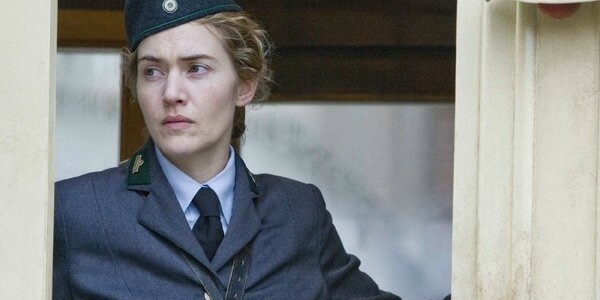
Kate Winslet’s performance of an ex SS officer in The Reader is one which stays with you a long while after the cinema lights have come up. Whilst it’s true that there is no shortage of American/British films that focus on the German viewpoint of World War Two, The Reader manages to do something that few else can.
The film is set many years after the end of the war, and we never actually see Hanna committing the atrocities we hear of. We don’t need to see the action or the war itself to have a firm understanding of exactly how Hanna could have behaved that way. Hanna and David’s relationship is exploitative and unnerving from the very beginning, and it is through this relationship we learn that Hanna’s past may be darker than we, or David, realised.
Predominantly, we view the relationship through David’s eyes and romanticise Hanna, to begin with. It’s easy to feel betrayed by her, as David does. Again, The Reader is a fantastic example of the duality that female characters can have. The historic narrative of Hanna’s incredibly active involvement in the war as a senior officer allows us to see how two sided humans can be. Is this the way Hanna always was? Or is it society?
The Reader blurs the lines between personal and impersonal. Hanna’s actions changed the lives (and ended the lives) of millions of people but it is possibly her dishonesty with David that we feel most betrayed by. Hanna as a character is stoic, strong and silent. She is a reminder that women are just as capable as men of atrocities. The film itself brings up ideas that began with Hannah Arendt, about what it means to be evil. Sure, it easy to view Hanna as evil and nothing else, but the film wants us to see her as a person – not just as a caricature of the SS.
Private Benjamin (1980, Howard Zieff)
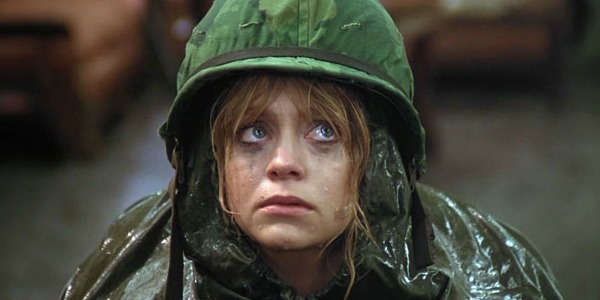
As we have established, it’s pretty rare to see women in war films. It’s even rarer, perhaps, to see women in war films that are comedic instead of serious. Private Benjamin is just that. Goldie Hawn plays Judy Benjamin, who has always dreamt of marrying rich, never working and living a life of luxury. Yes, it’s not an original premise, but whilst Private Benjamin falls into the same old narrative traps, it also unleashes a new and slightly ferocious character in Judy.
Firstly (after her husband dies very prematurely on their wedding night) Judy decides to join the US Army. Spoilt she may be, but it turns out that (after a bit of convincing) she’s actually a pretty good military leader. Sure, she struggles to get across the obstacle course and doesn’t make friends easily. But when Judy’s parents come to take her out of the army, something inside her clicks. She realises that she can be independent, and as much as she hates rigorous exercise and the lack of hotel amenities, the army can give her that independence.
Private Benjamin is not a serious film. It really doesn’t try to be. It’s tongue in cheek, and we spend as much time laughing at Judy than with her. However, it is the ending of Private Benjamin which convinced me that it’s actually more than just a wacky comedy. In the second half of the film, Judy leaves the army to be with her new lover Henri.
Henri quickly becomes irritable, uncaring and is very obviously still hung up on his ex girlfriend. Judy soon realises that this is not the life she wants. She chooses a life of independence. It’s heavily implied that she does rejoin the army, but either way we can certainly conclude that being in the army changed her life, for the better.
Yes, Private Benjamin doesn’t do much to dispel the idea that the Army is just a bit of a good time, but it does try to change those older gender stereotypes about how women are supposed to behave throughout their lives. Judy is allowed to enjoy wearing nice clothes and make-up whilst simultaneously being a pretty good soldier. Although at first it seems like the joke’s on her, especially when she is shouted down in one of the first scenes at basic training, the ultimate punchline is on those who didn’t think she could do it.
Lioness (2008, Meg Mclagan & Daria Somers)
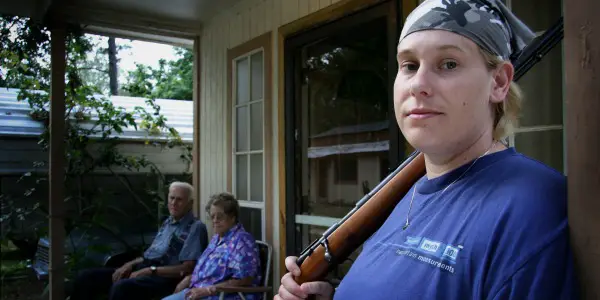
A film that will stick out ever so slightly in this list is Lioness, a 2008 documentary by Meg McLagan and Daria Sommers, which highlights the women who fought on the front-line in the Iraq war in 2003. There are even fewer documentaries made about women in war than dramas, and Lioness stands out as possibly the only one about women soldiers in Iraq.
A common misconception is that women don’t fight on the front-line (understandably believed because it has only become legal for women in the USA to serve in hand to hand combat now in 2016). Lioness tells a very different story, one of American women drafted into the Army for engineering or communication roles but ended up fighting in hand to hand combat with little to no training. McLagan and Sommers interview several of the female soldiers belonging to the all female Search Team – known to most people as the Lionesses.
As we soon discover, the effects of fighting on the front-lines in Iraq has had a high toll on most of the women. A few of them speak about how they only signed up for the army in order to get a college scholarship, or to be able to enroll in classes to further educate themselves, but they are now unable to do so due to severe PTSD. They talk about their time in Iraq, the things they faced and the horrendous situations that they were put into. Their primary task of searching Muslim women (as the Muslim faith doesn’t allow women to be searched by men) soon turned into the Lionesses fighting side by side with the Marine Corps.
Lioness is quite clear in what the issues with this are. The female soldiers are just as capable, just as skillful and equal in intelligence to the Marines, but the lack of training for this type of situation meant that they became vulnerable. They were completely under-prepared. McLagan and Sommers also make the anger-inducing point that these women (who fought side by side with the men, for their country) are completely written out of the history books because they were not technically supposed to be engaging in combat, by law.
The brutal honesty within the interviews with these women allow us to fully see the price of war. Although the Lionesses are a part of the US army, the film takes great strides to avoid the hyper-patriotism that many of today’s war films fall prey to. McLagan and Sommers allow us to see how the price of war is paid for on all sides.
Check back soon for part two of this post, where we will be exploring women who are paving the way for representation within the war film genre.
In the meantime, who are your favourite war film protagonists? Do you think women are portrayed less as victims than they have been in the past?
Does content like this matter to you?
Become a Member and support film journalism. Unlock access to all of Film Inquiry`s great articles. Join a community of like-minded readers who are passionate about cinema - get access to our private members Network, give back to independent filmmakers, and more.
Becky spends her days working in TV and she spends every other minute writing about cinema, TV & feminism. Based in London, she also likes drinking gin, re-watching 'The X Files' and writing about on-screen representation and all manner of things over at femphile.com













